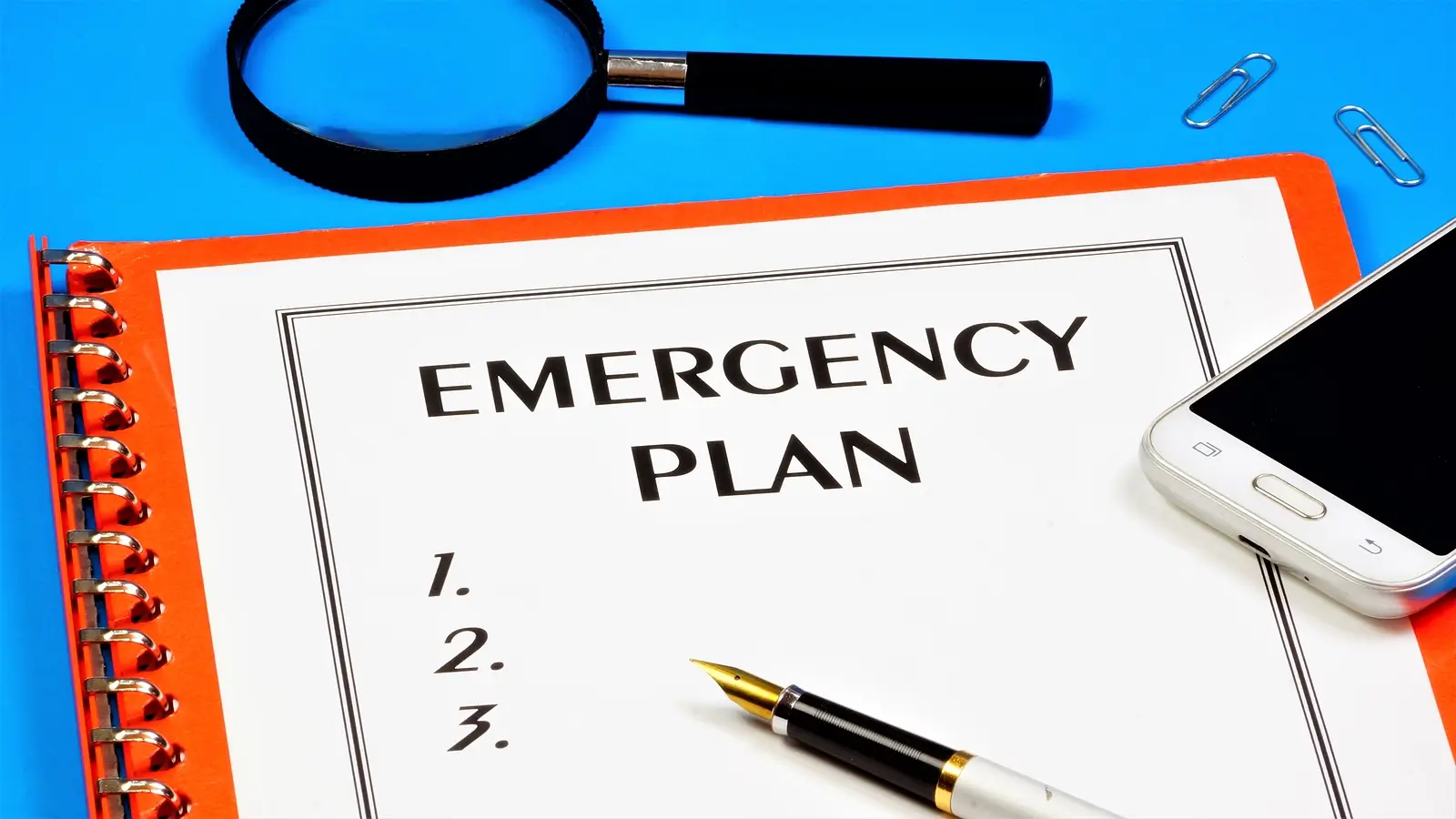An unprepared landlord facing a property emergency risks tenant dissatisfaction and soaring repair bills.
This blog post will provide landlords like you a step-by-step guide to emergency preparedness; you’ll be the calm hero in the storm, safeguarding your rental property and your bottom line.
Key Takeaways:
A robust emergency response plan can significantly reduce repair costs and safety risks.
Regular property maintenance prevents emergencies and maintains property value.
Clear communication with tenants ensures smooth handling of emergency situations.
Understanding the Importance of Emergency Preparedness
Protecting Tenants and Property
Emergency preparedness isn’t just about being ready for disasters; it’s about creating a shield for your tenants and your investment. Emergencies like gas leaks, water leaks, or malfunctioning electrical systems pose immediate threats to tenant safety and property value.
A big part of this is addressing rental property emergencies efficiently and ensuring tenants feel secure.
Addressing the Denver-Specific Challenges
Denver rental properties face distinct challenges, from snowstorms to high-altitude weather fluctuations.
A tailored emergency response plan ensures you're prepared for unique maintenance issues, minimizing risks to safety and property value.
Developing a Comprehensive Emergency Response Plan
What Makes an Emergency Response Plan Effective?
A good emergency response plan provides clear instructions for handling emergency scenarios. Include evacuation routes, emergency contact numbers, and protocols for handling issues such as plumbing failures or electrical issues.
Customizing this plan for your properties ensures efficient responses during emergencies, even outside regular business hours.
Identifying Potential Safety Risks
To safeguard tenant safety, conduct regular property inspections to identify potential hazards. Focus on inspecting key building systems like HVAC systems, plumbing systems, and electrical systems.
Address minor issues promptly, as they often escalate into emergency repairs.
Another area to consider is tenant-reported issues. By encouraging tenants to notify you of any potential safety hazards they come across, you can proactively address these risks and ensure a safer property environment.
Outlining Emergency Procedures
Provide tenants with clear emergency procedures, including instructions on shutting off utilities such as gas and water. Sharing such guidance during the signing of the lease agreement prepares your tenants and emphasizes safety as a community priority.
Building a Network of Reliable Emergency Maintenance Vendors
Selecting the Right Contractors
Partner with emergency maintenance vendors who are experienced with Denver’s unique maintenance challenges. Your vendors should offer 24/7 availability and immediate intervention capabilities for critical systems, such as heating systems or air conditioning units.
They should also provide urgent intervention ensures that critical property issues are effectively managed, especially in emergencies.
The Role of Property Management Companies
Engaging a property management company is a smart move if you own multiple properties or lack the time to handle maintenance emergencies. Property management professionals streamline communication, ensure repairs are addressed promptly, and ensure compliance with local regulations
Ensuring Tenant Safety During Emergencies
Educating Tenants about Emergency Preparedness
Tenants play a crucial role in emergency preparedness. Share guidelines for responding to emergencies, including how to handle minor issues and when to contact emergency services.
Make sure tenants know the importance of reporting safety risks, such as exposed wiring or gas odors.
Promoting tenants well being in this way not only improves communication but builds trust between landlords and tenants.
Installing and Maintaining Safety Equipment
Equip your rental property with essentials like carbon monoxide detectors, fire extinguishers, and smoke alarms. Regularly inspect these devices as part of the routine maintenance and to ensure they’re functioning correctly.
These preventive measures significantly reduce safety risks.
Preventing Emergencies Through Regular Maintenance
Regular Property Inspections
Frequent inspections help identify potential problems before they escalate. For example, catching a minor plumbing issue early can prevent significant damage caused by burst pipes or water leaks.
Inspections protect your long-term investments and reassure tenants in their living environments.
Implementing Preventive Maintenance Strategies
Proactive strategies like servicing HVAC systems or sealing entry points against water leaks go a long way.
Prioritizing regular maintenance not only prevents emergencies but also preserves the value and habitability of your property.
Keeping Property Maintenance Legally Compliant
Denver landlords must adhere to local laws that mandate regular property maintenance. Ensure you meet these standards to avoid fines and improve tenant satisfaction by providing a safe, habitable environment.
How to Respond Effectively During an Emergency
Using Emergency Contacts Wisely
Compile a list of emergency contacts, including utility providers and reliable contractors. This ensures you can respond promptly to critical issues.
Make sure this list is accessible to both you and your property managers. These contacts help reduce response times during emergency situations.
Coordinating Repairs with Vendors
Reliable communication with maintenance vendors during emergencies helps secure necessary repairs as quickly as possible.
Clear dialogues prevent missteps, keeping repairs on track and minimizing disruptions for tenants.
Communicating with Tenants
Clear updates about the status of repairs and expected timelines for resolution make all the difference in tenant satisfaction during stressful situations.
Open communication fosters trust and helps tenants feel supported in their time of need.
Strengthening Emergency Preparedness with Technology
Leveraging Communication Tools
Modern tools like tenant notification platforms streamline emergency communication. Use these tools to send alerts about emergency issues, repair progress, or evacuation instructions.
These tools can also be used on updating tenants on the progress of emergency management efforts
Automating Maintenance Requests
Combine communication tools with automated maintenance request systems. These systems help you track repair requests efficiently and ensure timely action on tenant concerns.
Managing Costs and Risks
Balancing Expenditures During Repairs
Emergency repairs can strain a landlord’s budget. Prioritize life-threatening issues like gas leaks and electrical failures, and weigh long-term repair costs against immediate safety needs.
Maintaining Property Value
Quick responses to emergencies help to preserve property value. Proactive measures that minimize damage reduce the financial burden of extensive repairs in the future.
Post-Emergency Steps
Updating Your Emergency Plan
After resolving an emergency situation, evaluate your response process. Identify weaknesses in your emergency response plan and make adjustments to enhance its effectiveness.
Strengthening Relationships with Tenants and Vendors
Transparency during emergencies builds trust with tenants and vendors alike. Maintain strong partnerships with your emergency maintenance vendors and express gratitude for swift, reliable service.
Conclusion
By following these steps, crafting a detailed emergency plan, and collaborating with Laureate LTD, you can safeguard your investment while ensuring the safety of your tenants.
We offer various services that go beyond emergency preparedness, such as rent collection and tenant screening.
It’s time to take action and build a resilient foundation for your rental properties.
FAQs
How can landlords determine which repairs qualify as emergencies?
Repairs that pose immediate threats to tenant safety or property integrity, such as water leaks, gas leaks, or electrical faults, qualify as emergencies. Regular maintenance helps landlords differentiate between emergency and routine repairs.
Should landlords require tenants to have renters' insurance as part of their emergency preparedness plan?
Requiring renters insurance can protect both landlords and tenants during emergencies. It ensures coverage for tenant belongings and shifts the financial burden from landlords in case of significant property damage.
What should landlords do if a tenant refuses to follow emergency procedures?
If a tenant resists or fails to follow emergency procedures, document the incident and address it head-on. Open communication, clear signage, and regular reminders about emergency protocols help reinforce compliance.
Other Resources:
Professional Rental Analysis: The Denver Landlord's Guide
Why Routine Property Inspections in Denver Are Key to Long-Term Rental Success



